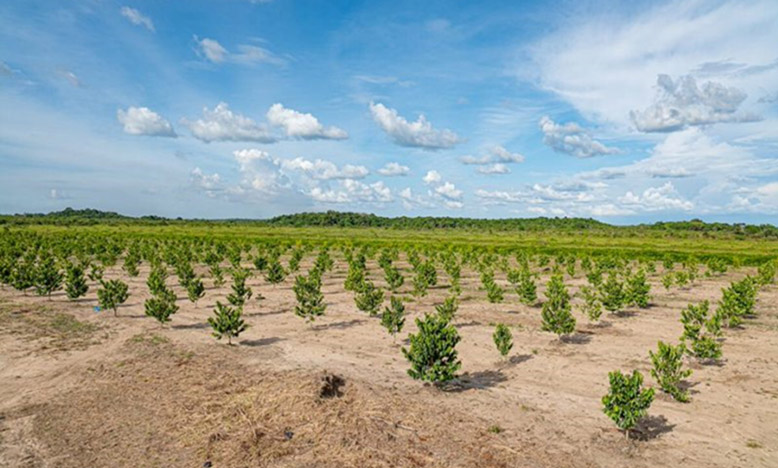–challenges farmers, processors to get into value-added production
A variety of annual and perennial crops have been identified by the Caribbean Agricultural Research and Development Institute (CARDI) to reduce food imports by 25 per cent by 2025.
This initiative, which falls under the commercial arm of CARDI — the Caribbean Agricultural Commercial Services Hub (CACSH) — involves the cultivation of high-valued crops such as coconuts, soursops, passion fruit and short-term vegetables.
Head of CARDI, Jhaman Kundun, has said that approximately 500 acres of land are under different stages of development.
He added that hot pepper seeds such as Moruga Red, Moruga Yellow, Scotch Bonnet and West Indies Red are in high demand.

Meanwhile, according to CACSH’s Chief Executive Officer (CEO), Maurice Wilson: “The regional hot pepper industry is a lucrative one with demand for fresh and value-added products rising. CARDI and CACSH are working together to meet the demand and capitalise on these opportunities.”
Ebini, located in the Upper Berbice River, he said, has been earmarked for development as the “new agriculture frontier” by the Government of Guyana.
This is the site, Wilson said, which is designated for the 5,000 acres Ebini Integrated Agri-business Project, developed and managed by CACSH. This project, he added, is designed to develop a commercially viable integrated food production system for a selected range of food and agricultural products.
The company has so far secured agreements with local agro processors to transform some of the fruits into juice blends and pulps, among other things.
The CACSH has also identified markets for exotic fruits and vegetables in Canada, the United States of America and the United Kingdom. Those commodities will be produced by the company under a satellite farm system sourced from farms in the Upper Berbice River.
With this, it is evident that the company is keen on demonstrating the value of vertical integration.
“We need farmers and processors to re-orient their thinking away from just producing raw materials. They need to get into value added product development and enjoy greater revenue streams along the value chain while generating local employment,” Wilson said.
He also emphasised that CACSH is also looking to introduce large-scale corn and soybean production in Ebini, using CARDI-produced seeds and technological packages.
This activity is closely aligned to the Government of Guyana’s goal of reducing the importation of corn and soybean for the manufacturing of animal feed by ramping up commercial production.
CACSH’s activities in Guyana and across the wider Caribbean are based on financial and environmental sustainability. The company’s aim is to attract investors to accelerate the development of the regional agriculture sector.
Kundun said CACSH was established in 2016 as the commercial arm of CARDI. Based in Trinidad and Tobago, the company delivers agri-business solutions to the public and private sectors across the Caribbean.
“CACSH is registered in four CARICOM territories and is working to expand its presence. Among the major objectives of CACSH are the provision of technical and business advisory support services and the marketing selected agriculture inputs and commodities,” he said.



.jpg)








